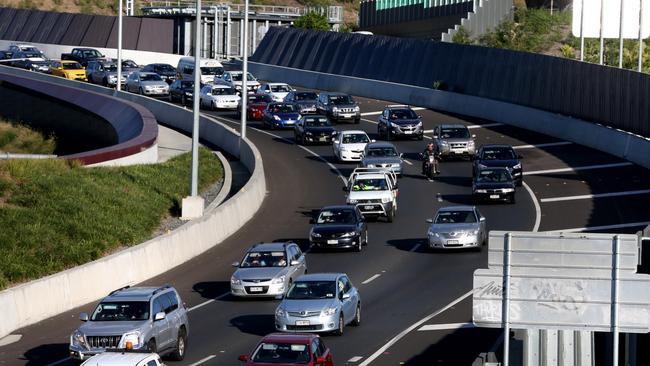Victoria’s deadly holiday routes revealed as police launch holiday blitz
Victoria’s dangerous roads where more than 200 people were left dead and injured over the holiday period have been revealed as police launch as Christmas crackdown on drink and drug-driving offences.
National
Don't miss out on the headlines from National. Followed categories will be added to My News.
Exclusive: Victoria’s most deadly holiday routes have been revealed as police launch a Christmas blitz on drink and drug-driving offences.
Data provided to News Corp by the Department of Transport shows the top five roads where the most deaths and serious injuries occurred over the holiday period.
It comes as Victoria Police warned there would be a crackdown on drink and drug driving over Christmas and New Year.
The Department analysed road trauma statistics on drivers, passengers and motorcyclists for the period November 1 to February 28 across the past three years. The results showed more than 200 serious injuries and deaths.
It also revealed the five most dangerous roads across the period in 2018-2019.

Over just three months, three people died and sixteen others were seriously injured on the Western Fwy. It was a similarly tragic story on the Calder Fwy, where incidents left 14 people seriously injured and one dead.
Seven people were left with serious injuries on the Hume Fwy, while one person was killed and five were seriously injured on the Monash Freeway.
Three people were seriously injured on the Eastern Fwy.
A Department of Transport spokesperson urged drivers to take care this holiday season.
“Before you get behind the wheel plan your journey, ensure you take plenty of rest breaks and share the driving where possible,” the spokesperson said.
“Distractions like mobile phones can lead to fatal consequences and fatigue is also a major factor in road trauma – especially on regional roads.”
However, trauma (deaths and serious injuries) figures on those roads have trended downwards across the past three years.
Over the same period in 2016/2017, there were 88 which fell to 71 in 2017/2018 and again to 50 in 2018/2019.
But Australian Road Safety Foundation Russell CEO Russell White said that was no reason to be complacent.
Mr White said driver fatigue was an issue over the holiday period, and recommended organising a second driver on long distances to minimise the risk of falling asleep behind the wheel.
Adjusting to different environments was also an issue, he said.
“People who have been conditioned to drive in an urban environment might suddenly find themselves on a freeway or a much more open road. That can mean that people aren’t looking far enough ahead, or aren’t appropriately prepared for a particular stretch of road.”
He also warned locals not to rely on assumptions about roads they travel frequently in the event of an increased number of holiday-makers travelling through.
Road policing command assistant commissioner Libby Murphy said Operation Roadwise had two key areas and would run until Sunday, January 5.
“Drug and alcohol testing will be taking place throughout the state and our police will be testing as many motorists and riders as possible to get those who are impaired off our roads,” Ms Murphy said.
It comes as research from comparison site Finder.com.au showed that almost a third of respondents from a survey more than 1000 people planned to travel the country this summer.
Figures from the comparison site also highlighted the activities which distract Aussies behind the wheel.
Finder Insurance specialist Taylor Blackburn said drivers should make sure their car is roadworthy, their insurance is up-to-date and that they have roadside assistance.
The survey found 44 per cent admitted to eating food while behind the wheel, 11 per cent had sent a text message without using voice control, and 10 per cent had answered a call without using a hands-free device.
“If you’re engaging in risky behaviour behind the wheel and you are in an accident, you may not be able to claim the damage on your insurance,” Mr Blackburn said.
“Comprehensive car insurance also won’t cover damage that’s been caused by illegal activities such as texting and driving.”
